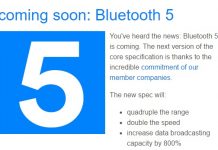![padlock[3] padlock[3]](http://www.teleread.com/wp-content/uploads/2010/09/padlock3_thumb.jpg) On our sister blog Appletell, Bill Stiteler writes about the contortions he had to go through to get a DRM-restricted Overdrive audiobook from his local public library onto his iPod. It turned into a time-consuming process that took far longer than should be necessary for something as simple as checking out a library book. (We covered a webcomic’s look at library audiobook DRM back in March.)
On our sister blog Appletell, Bill Stiteler writes about the contortions he had to go through to get a DRM-restricted Overdrive audiobook from his local public library onto his iPod. It turned into a time-consuming process that took far longer than should be necessary for something as simple as checking out a library book. (We covered a webcomic’s look at library audiobook DRM back in March.)
Even though the Overdrive Media Console is available for both Mac and PC, only some of its content can be downloaded through the Mac version. Stiteler had to boot into Windows (and install all the updates that had been backed up since last time he’d been in Windows), install iTunes for Windows, change the conversion settings in iTunes, and finally convert and sync the book.
The entire process required about an hour and a half, and a good deal of frustration on Stiteler’s part. Even though, as Stitler notes, some of that hour and a half was taken up by having to update Windows and install an app that a Windows iPod user would already have, it’s still a lot of rigamarole to go through.
In my tech support day job, I deal with ordinary non-geek people who have trouble doing even the simplest thing on their computer: connecting to wifi, setting up a printer, even figuring out how to launch the web browser on their brand new Macintosh. In what universe are these people supposed to be able to make their way through the complicated process Stiteler describes?
Stiteler points out:
There’s a really great flow chart showing the difference between pirating a movie and buying a DVD. The pirate gets to watch the movie right away. The person who buys it has to endure unskippable commercials and threats before finally getting to the content. Even at its most restrictive, iTunes made things easy for the consumer: play on five computers, an unlimited number of iPods, burn to a CD (and rip back).
And he points out that he could just have torrented the audiobook in 15 minutes.
How is this sort of complicated DRM-laden process supposed to do anything except drive people to go download it illegally?
But if publishers want to insist on DRM, they have the right to do that. Still, Amazon has managed, with its Kindle, to make the process of downloading and reading DRM-locked e-books effectively invisible to the consumer. Where’s the Kindle of DRM-locked audiobooks?































Apple and Amazon have both been woefully lax at coming up with ways to make their respective gadgets work in a friendly fashion with public libraries, and that includes both ebooks and audio books. All that really requires is a time stamp, after which the check out becomes invalid unless renewed. Otherwise, it’s no different from a purchase and download, which both Apple and Amazon or quite eager to support. Books for me (those rich enough to buy) but not for thee (those who must user their public library).
As a writer, I’d love to see a system developed where the books I write are available for loan for free from virtually every public library, with a modest payment only coming when someone checks it out. That’d give even small town libraries an immense collection and it’d make it easier for all libraries to handle hot new releases (Harry Potter) without loading the library with far more copies than they will need in six months time.
I also suspect the entire cost of a checkout would be less than the cost of pulling physical books from the shelves and moving them between libraries in major cities.
I use a Windows PC for my ‘main’ computer at home. I tried putting a library audiobook on my ipod once and decided it wasn’t worth it. I literally could have ripped the audiobook from cds or torrented it faster.
My answer was to spend $30 on a refurb Sansa. Now I can just download and transfer and the whole thing is done in a couple of minutes. The end result, I use my Sansa ALL THE TIME. I only use my ipod for music, and since I listen to audiobooks far more than I listen to music, when my ipod dies I won’t be getting another one. I might upgrade from my 4gb Sansa Fuze to something larger and more tricked out, but it won’t be an ipod.